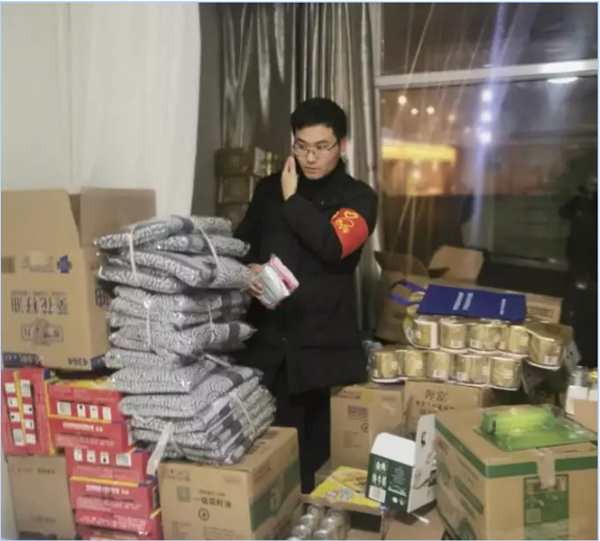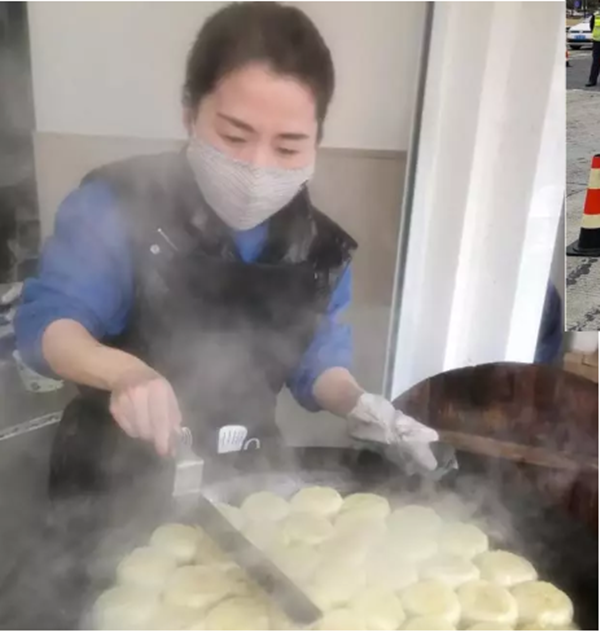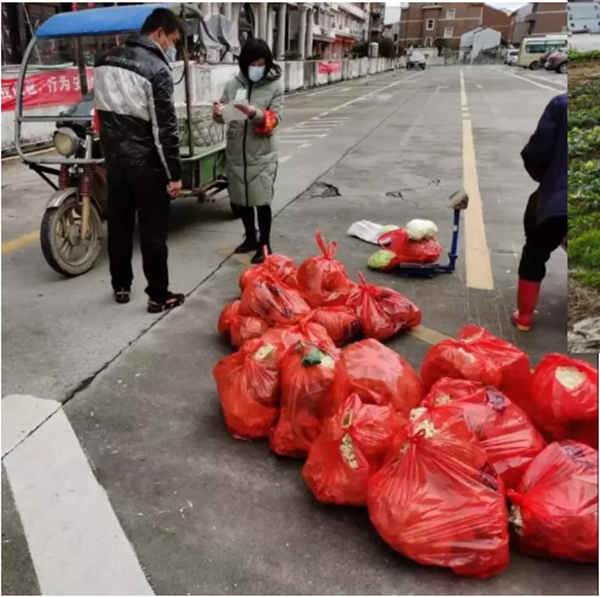Judicial administrators play diverse roles to guarantee people’s livelihoods
While medical workers spare no effort to save people's lives on the front line of the battle against the COVID-19, judicial administrators are playing their part to safeguard people's daily lives.
At one concentration facility for medical observation in Hangzhou, capital of East China's Zhejiang province, Brother Hui, as the people he serves call him, has been busy running errands for the people under medical observation since Spring Festival in late January.
An officer at the local judicial station, Hui is now undertaking the task of buying daily necessities for those people as a member of a logistics team.
Every morning, he reaches them through phone calls or Wechat and writes down all the stuff they want. Then he goes to the nearby supermarket to make the purchases.
In addition to doing shopping, Hui is also responsible for receiving packages and takeout food for the people, diligently fulfilling his duty like a store clerk.
The other day, Hui received a package that really moved him. It was a box of oranges purchased online by one of the people under medical observation who left a message to Hui on the attached mail order which read "Brother Hui, I have bought two boxes of oranges and this one is for you. Don't send it back to me. You've worked really hard."

In another story happening in the city of Jiaxing, a female judicial administrator surnamed Du is devoting her excellent cooking skills to the fight against the epidemic.
Shortly after the coronavirus outbreak, Du voluntarily jumped into epidemic prevention and control at a highway toll station. She soon discovered that it was difficult for the front-line personnel there, including police officers and those carrying out medical observations, to buy meals due to the closure of restaurants in the area.
To solve this problem, Du teamed up with several other female volunteers to cook meals for them.
The number of hot meals they cook has risen from around 40 per day to over 100 since Jan 30 with cuisines varying from day to day.
"This is something within my reach that can empower people with positive energy," said Du. "With more and more people beginning to support our work through donations, we will definitely win this battle against the epidemic."

Apart from city dwellers, farmers are also stuck in the epidemic as the strict quarantine measures make it hard for them to sell the ripe vegetables they grow.
For the sake of local farmers' livelihoods, staff at the judicial bureau in the city of Leqing decided to take on the role of salespersons to help farmers sell their products.
"Cadres of a village told us that a number of farmers had yet to reap or sell their cauliflowers while another farmer was struggling to sell his many duck eggs," said Jiang, an officer at the bureau. "We decided to do something for them."
Learning that it is now fairly inconvenient for many residents in the city to buy farm products, Jiang and her colleagues set up WeChat groups to bring these residents together.
With these online groups, the staff can collect the orders from the residents and then tell farmers how many products they should prepare.
Once the farmers place the packaged products on the ground outside the village, the staff will inform residents who go on a staggered schedule to pick up their packages.
The staff has also managed to expand the market to the whole city. As a result, the farmers sold some 500 kg of vegetables and over 400 kg of duck eggs in just a few days.


Ministry of Justice of the
People's Republic of China
All rights reserved. Presented by China Daily.
京ICP备13016994号-2


